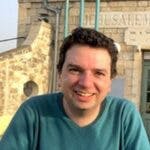Published: 15 July 2022
Last updated: 5 March 2024
Project Rozana has launched two new health programs to fill the gaps in the Palestinian health system and share knowledge between Israelis and Palestinians
Much of the focus of the Israeli media surrounding President Biden’s visit to the Augusta Victoria Hospital (AVH) in East Jerusalem this week surrounded the politics of a US President visiting a Palestinian Hospital unaccompanied by an Israeli official, challenging the status of Jerusalem as Israel’s undivided capital.
Yet something far more meaningful is happening that the hospital that will bear fruit long after the President jets off to Saudi Arabia. At the visit, the US government pledged $100 million to the East Jerusalem Hospital Network which aims to build the capacity of the Palestinian health system.
With less fanfare but considerable on-ground impact, Project Rozana this week launched a nurses’ training program at AVH and a women’s health program in remote villages in the West Bank, working with Hadassah and Sheba to cultivate trust between Israelis and Palestinians.
The new initiative in Jerusalem focuses on cultivating peaceful coexistence between Israelis and Palestinians while bridging critical healthcare delivery gaps in the nursing field. While Palestinians make up 38% of Jerusalem’s residents, only 5% have Israeli citizenship. Palestinian-dominated East Jerusalem has inferior health care and infrastructure compared to West Jerusalem.
“Enabling Palestinians to provide healthcare in their remote communities lays the groundwork for an empowered people"
Ronit Zimmer, Executive Direct, Project Rozana
The new program provides an opportunity for nurses from Augusta Victoria Hospital in East Jerusalem, to receive hospital-based training in specialty and sub-specialty fields including Nephrology and Dialysis, Oncology, Geriatric and Critical Care, delivered by Hadassah Medical Center's world-renowned nursing school which is located in West Jerusalem.
The comprehensive program was developed to fill skills gaps at Augusta Victoria Hospital and the Palestinian nursing sector in general, and to respond to patient distribution and needs.
Palestinian Nurse Faten, who is a participant in the program, said in an interview at the Hadassah oncology ward, that being part of the initiative would broaden her knowledge of how other hospitals functioned.




